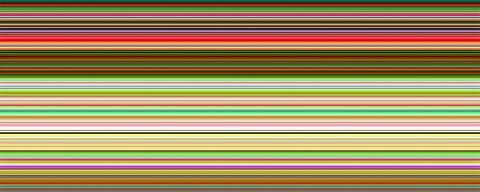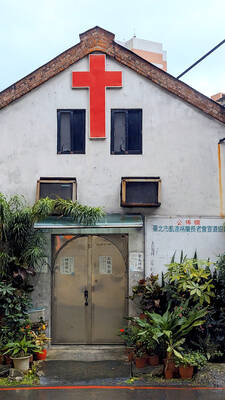Back in Taipei this weekend for its 21st year with the theme Dear Art, Art Taipei takes a huge stride by bridging communication between the world of high art and the public.
“We are aiming to be the new hub of Asian art,” said Eva Lin (林怡華), the director of Art Taipei.
This year’s exhibition will showcase a variety of artwork created by Taiwanese and foreign talents, alongside educational and interactive workshops open to the public. Lin told the Taipei Times that in addition to the usual contenders from China, Japan and Korea, there will be more representation from Southeast Asia this year.

Photo courtesy for Taiwan Art Gallery Association
“People normally come to Taiwan expecting to see Chinese art, but Taiwan is also in a great location geographically to feature artwork by Southeast Asian artists,” she said.
Lin says that compared the Northeast Asia, artwork from Southeast Asia tends to be more vivid and distinguishable. Viewers who are not necessarily art critics can more easily tell if this piece is from Thailand or Malaysia. Such is not the case for Taiwan — at least in the eyes of international art community, Taiwanese art is still somewhat of a subcategory of Chinese art.
However, it doesn’t bother Lin that art critics and buyers are flocking to cities like Shanghai, Hong Kong or Singapore. These places may be where all the big bucks are flowing, but Taipei has something invaluable in the world of high art — soul and authenticity.
“We are not emphasizing a commercial, McDonalds-like approach,” Lin said.
Lin added that the Hong Kong approach to selling art might be “very western and very international,” but she says that art fairs like Art Taipei are trying to emphasize more inclusivity.
“Art is like therapy,” Lin says, “everyone has different ways of communicating with art and if a piece makes you feel uncomfortable, it is simply not the right piece of artwork for you.”
When faced with commentary on how Taiwan’s art scene has to become more “international” in order to succeed, Lin says the term “international” can be subjective and she prefers to use the phrase “internationally aware.”
In other words, Taiwanese artists should be aware of what other artists around the world are doing, but there is no need to repackage the entire art market here such that it will fit better for global consumerism.
As Lin said, “there are two values of art, one is the market value and the other is the educational value.”
Art Taipei aims at developing the educational value in hopes that greater public understanding of art will ultimately drive up its market value.

The Directorate-General of Budget, Accounting and Statistics (DGBAS) told legislators last week that because the Chinese Nationalist Party (KMT) and Taiwan People’s Party (TPP) are continuing to block next year’s budget from passing, the nation could lose 1.5 percent of its GDP growth next year. According to the DGBAS report, officials presented to the legislature, the 2026 budget proposal includes NT$299.2 billion in funding for new projects and funding increases for various government functions. This funding only becomes available when the legislature approves it. The DGBAS estimates that every NT$10 billion in government money not spent shaves 0.05 percent off

Dec. 29 to Jan. 4 Like the Taoist Baode Temple (保德宮) featured in last week’s column, there’s little at first glance to suggest that Taipei’s Independence Presbyterian Church in Xinbeitou (自立長老會新北投教會) has Indigenous roots. One hint is a small sign on the facade reading “Ketagalan Presbyterian Mission Association” — Ketagalan being an collective term for the Pingpu (plains Indigenous) groups who once inhabited much of northern Taiwan. Inside, a display on the back wall introduces the congregation’s founder Pan Shui-tu (潘水土), a member of the Pingpu settlement of Kipatauw, and provides information about the Ketagalan and their early involvement with Christianity. Most

The People’s Republic of China (PRC) was out in force in the Taiwan Strait this week, threatening Taiwan with live-fire exercises, aircraft incursions and tedious claims to ownership. The reaction to the PRC’s blockade and decapitation strike exercises offer numerous lessons, if only we are willing to be taught. Reading the commentary on PRC behavior is like reading Bible interpretation across a range of Christian denominations: the text is recast to mean what the interpreter wants it to mean. Many PRC believers contended that the drills, obviously scheduled in advance, were aimed at the recent arms offer to Taiwan by the

Like many retirement communities, The Terraces serves as a tranquil refuge for a nucleus of older people who no longer can travel to faraway places or engage in bold adventures. But they can still be thrust back to their days of wanderlust and thrill-seeking whenever caretakers at the community in Los Gatos, California, schedule a date for residents — many of whom are in their 80s and 90s — to take turns donning virtual reality headsets. Within a matter of minutes, the headsets can transport them to Europe, immerse them in the ocean depths or send them soaring on breathtaking hang-gliding expeditions